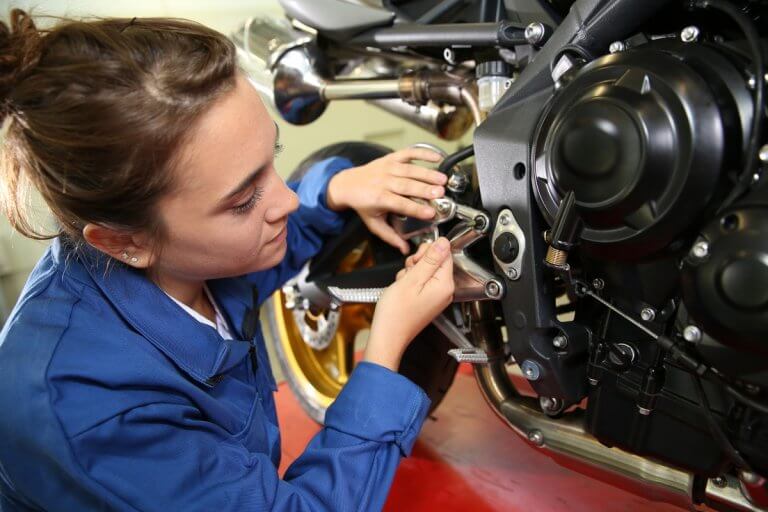
If you’re interested in studying in the UK or are a student there already, you may already have heard of ‘T-Levels’. But what exactly are they?
T-Levels are new technical courses students will soon be able to choose from upon completing their GCSEs. They sit alongside the traditional academic A-Level qualifications and apprenticeships, and will be rolled out next year.
If you’re curious to know more, our guide will help you understand what T-Levels are all about:
So, what exactly are T-Levels?
T Levels are new courses- equivalent to A Levels – launching in 2020, designed by employers to give young people key technical skills & hands-on experience. We have just launched the funding consultation: https://t.co/W2WNluQUbd pic.twitter.com/nXXwkZTE5Z
— Damian Hinds (@DamianHinds) November 28, 2018
According to Gov.uk, T-Levels are two-year courses that offer a blend of classroom learning and on-the-job experience through an industry placement of around three months.
They will form a new technical education option for students, developed in partnership with employers and businesses, so you can be assured that the content meets industry needs and prepares you for skilled employment upon successful completion of the programme.
T-Levels are scheduled to be rolled out in September 2020 at selected colleges and schools (providers) across England and will be equivalent to three A-Levels.
What are some of the industry areas covered?
The UK government has confirmed that students will be able to take subjects in a range of areas, including, but not limited to:
- Accountancy
- Animal Care and Management
- Building Services Engineering
- Craft and Design
- Digital Business Services
- Education
- Finance
- Hair, Beauty and Aesthetics
- Healthcare Science
- Human Resources
- Legal
- Science
How are T-Levels different to apprenticeships?
T-Levels and apprenticeships sound similar, especially when both courses offer on-the-job experience. But T-Level students can expect to spend more time in the classroom while apprenticeship students will spend more time in the workplace.
Gov.uk notes: “We expect the total time for a T-Level to be around 1,800 hours over the two years, including the industry placement. This is a significant increase on most current technical education courses.
“This differs from an apprenticeship, which is typically 80 percent on-the-job and 20 percent in the classroom and is more suited to those who know what occupation they want to pursue, want to earn a wage and learn at the same time and are ready to enter the workforce at age 16.”
They note that T-Levels will be based on the same standards as apprenticeships, designed by employers and approved by the Institute for Apprenticeships and Technical Education (the Institute).
How are T-Levels structured?
Great to see @EEF_Economists map of how #TLevels can fit into the education system and importantly how vocational and academic pathways should be intertwined and not separate in @RAEngNews @JohnPerkins50 report. Important message to @educationgovuk @DamianHinds pic.twitter.com/Kc0nOAzFNi
— EEF Economics Team (@EEF_Economists) January 31, 2019
Gov.uk notes that T-Level courses will have the following compulsory elements:
- A technical qualification, which will include: core theory, concepts and skills for an industry area; and specialist skills and knowledge for an occupation or career
- An industry placement with an employer
T-Levels will include an industry placement (which lasts a minimum of 45 working days) with an employer focused on developing the practical and technical skills required for the occupation. These industry placements can be offered as a block, day release or a combination of these.
- A minimum standard in maths and English if students have not already achieved them
What about certification?
Upon passing all T-Level elements, students will get a nationally-recognised certificate showing an overall grade of pass, merit or distinction, making it clear to an employer that students have completed all components of the system. It will also detail what students have achieved on the course.
Where can I do my T-Levels?
@tsas_norwich – what pleasure to meet one our new T Level providers! Great staff and great school. pic.twitter.com/mpDbQsEYLc
— Anne Milton MP (@AnneMilton) January 24, 2019
As T-Levels are still being developed, the first T-Level programmes offered are only in specific occupations in three industries in 2020:
- Digital Production, Design and Development
- Design, Surveying and Planning
- Education
For a list of T-Level providers, click here.
The next seven T-Levels to be taught from 2021 include:
- Building Services Engineering
- Digital Business Services
- Digital Support and Services
- Health
- Healthcare Science
- Onsite Construction
- Science
The government aims to introduce all the remaining courses by September 2023.
Liked this? Then you’ll love…
T-Levels: A wise or risky choice for UK-bound international students?
Apprenticeship 101: A guide on pursuing an apprenticeship in England







